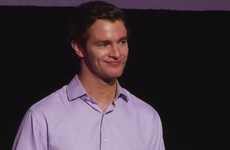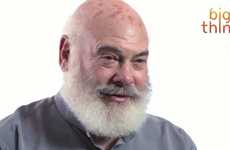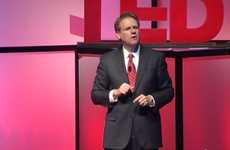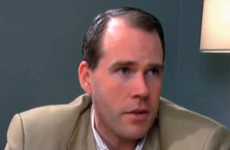
Nat Ware Keynotes
The Nat Ware talk explores the concept of the expectation gap and explains how it affects our...

Need Inspiration?
Get inspired by 4,000+ keynote speaker videos & our founder, a top keynote speaker on innovation.
Nat Ware's Happiness Talk Explains the Expectation Gap
Alyson Wyers — November 19, 2014 — Keynote Trends
References: youtu.be
In his happiness talk, Nat Ware explains the concept of the expectation gap and why we're unhappy.
The expectation gap is defined as our expectations being greater than reality. The speaker identifies three different types of gaps, which are formed by our imagination, people around us and past experiences. The imagination gap happens when what we imagine exceeds reality. Ware asserts our decision-making process undermines happiness and technology makes it worse. He uses selection bias as an example and the way content-based algorithms prioritize information. The interpersonal gap is when we compare our reality to the reality of others where as the intertemporal gap is when our past experiences seem better than our current ones. The third gap happens when we spoil children.
The happiness talk explains how the expectation gap results in an inner battle. In economics and social enterprise the challenge is to take happiness and societal expectations seriously. Realistic representation needs to be emphasized among content providers. Governments should prioritize income equality. Kids should be supported and encouraged, but not given unrealistic expectations.
Ware's happiness talk concludes by saying humans are terrible at predicting their own happiness and our decision making process needs to take feelings into account.
The expectation gap is defined as our expectations being greater than reality. The speaker identifies three different types of gaps, which are formed by our imagination, people around us and past experiences. The imagination gap happens when what we imagine exceeds reality. Ware asserts our decision-making process undermines happiness and technology makes it worse. He uses selection bias as an example and the way content-based algorithms prioritize information. The interpersonal gap is when we compare our reality to the reality of others where as the intertemporal gap is when our past experiences seem better than our current ones. The third gap happens when we spoil children.
The happiness talk explains how the expectation gap results in an inner battle. In economics and social enterprise the challenge is to take happiness and societal expectations seriously. Realistic representation needs to be emphasized among content providers. Governments should prioritize income equality. Kids should be supported and encouraged, but not given unrealistic expectations.
Ware's happiness talk concludes by saying humans are terrible at predicting their own happiness and our decision making process needs to take feelings into account.
6.7
Score
Popularity
Activity
Freshness















